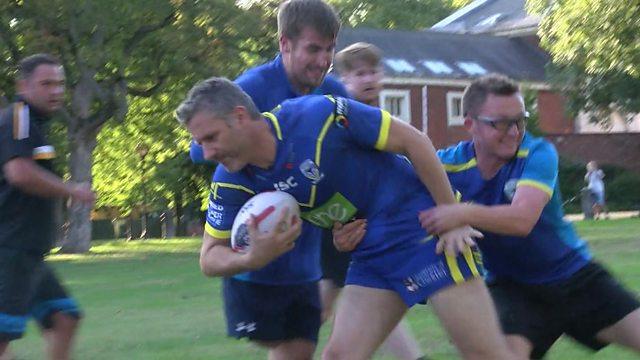Firefighter returns to dream job after hand injury
- Published
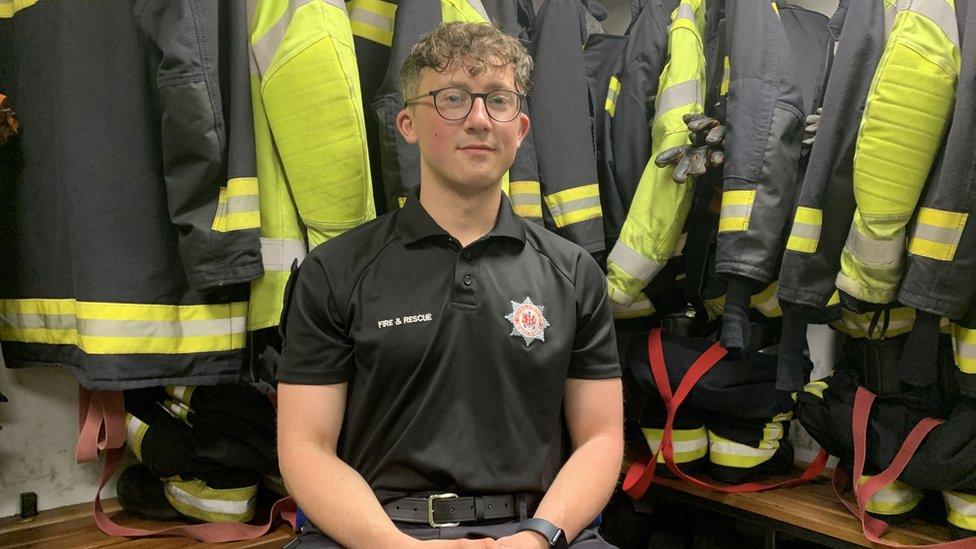
Anthony Seward was 20 when an accident forced him to retire from his role as a firefighter
A young firefighter, who had to give up his dream job after an industrial accident, said returning to his old role felt "really good".
Anthony Seward was 20 when his hand was crushed in an industrial mangle - an injury that required multiple surgeries, including having the hand sewn into his abdomen to help it heal.
Now 27, he is celebrating his return as an on-call firefighter.
"It's the best job in the world that you can do," he said.
In 2016, Mr Seward had been working as a retained - or on-call - firefighter in his home town of Tiverton for about a year.
Listen: 'I was told I was going to lose my job as a firefighter'
He was also working at a factory, which was where the accident happened.
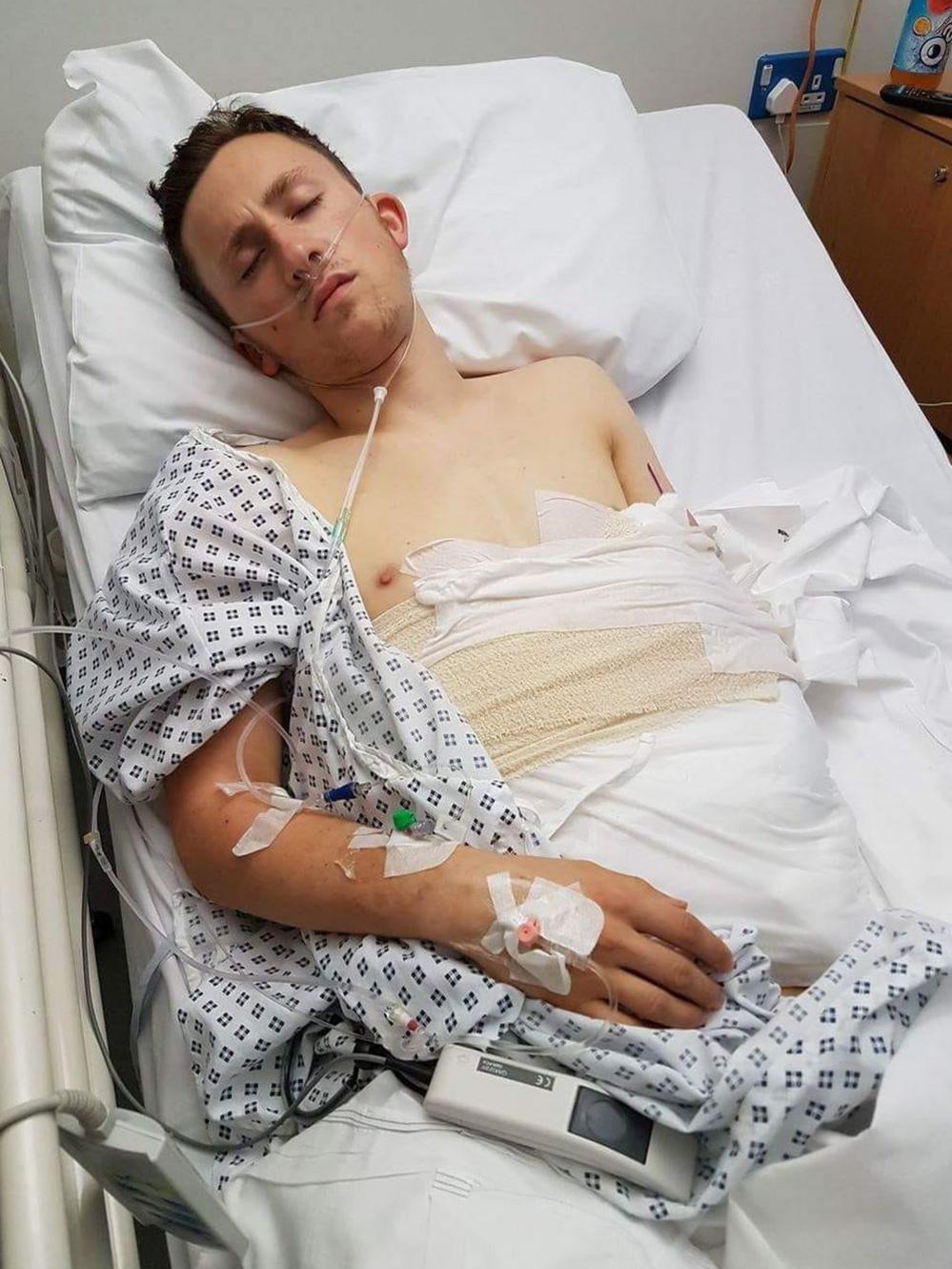
Mr Seward's recovery involved multiple surgeries to repair the damage to his hand
"I had loss of dexterity, loss of grip strength, I had amputations of all four finger tips, it was quite a serious de-gloving injury," he said.
Mr Seward said about a year after the injury he came to the realisation that he would no longer be able to work as a firefighter.
He said: "That was really upsetting having to come in and hand the pager in, that was... quite a horrible moment really, sort of admitting that it's just not going to happen again."
Afterwards, trying to make the best out of his new path in life, Mr Seward went to university in Birmingham to study strength and conditioning - hoping a potential career working with and being part of sports teams would give him back the sense of camaraderie he had experienced in the fire service.
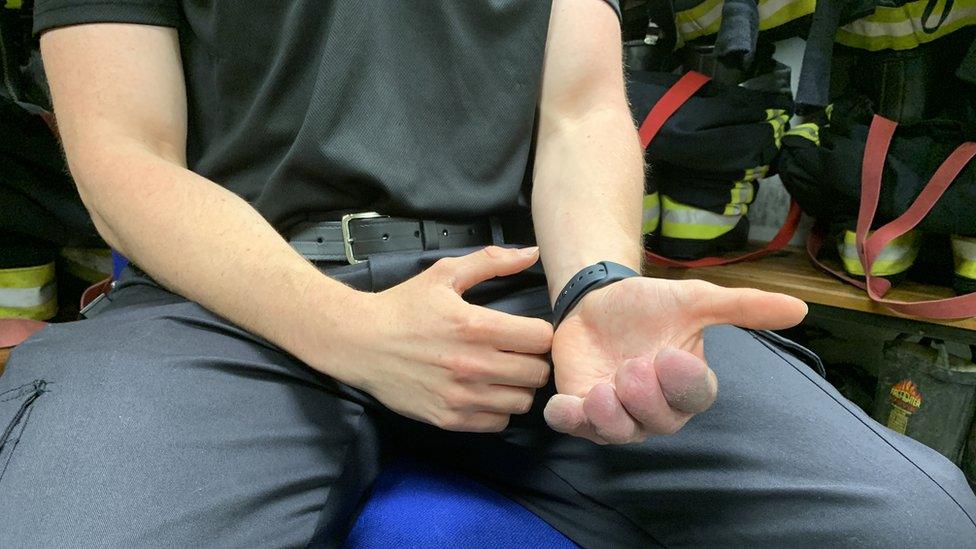
Mr Seward said he began to have hope for a return to the fire service after passing the minimum entry requirements on a grip test
It was while taking a grip test during his studies that he realised there might be hope after all.
"For a long time I'd given up on the concept of coming back," he said.
"The grip test was primarily the main thing that I'd always failed on.
"I was nowhere near strong enough to be able to do it… this time I was able to pass the basic entry requirements. Passing that was a really big realisation that I might be able to go back into it."
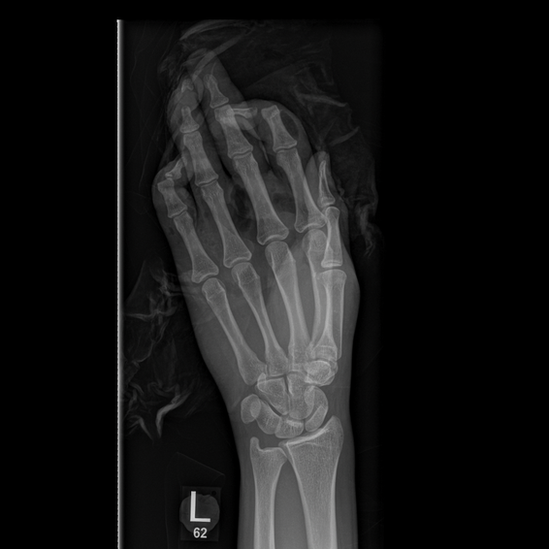
All four fingertips on his left hand were amputated
Mr Seward said he tried not to get his hopes up too much as he went through the process of reapplying to Devon and Somerset Fire and Rescue Service (DSFRS), trying to "manage it as best as I could but you know I was excited as I could be".
He was accepted as a firefighter on call at Tiverton - the same station he had worked at seven years previously and said his colleagues there had welcomed him with open arms.
Mr Seward has since finished his initial training and been on his first call outs.
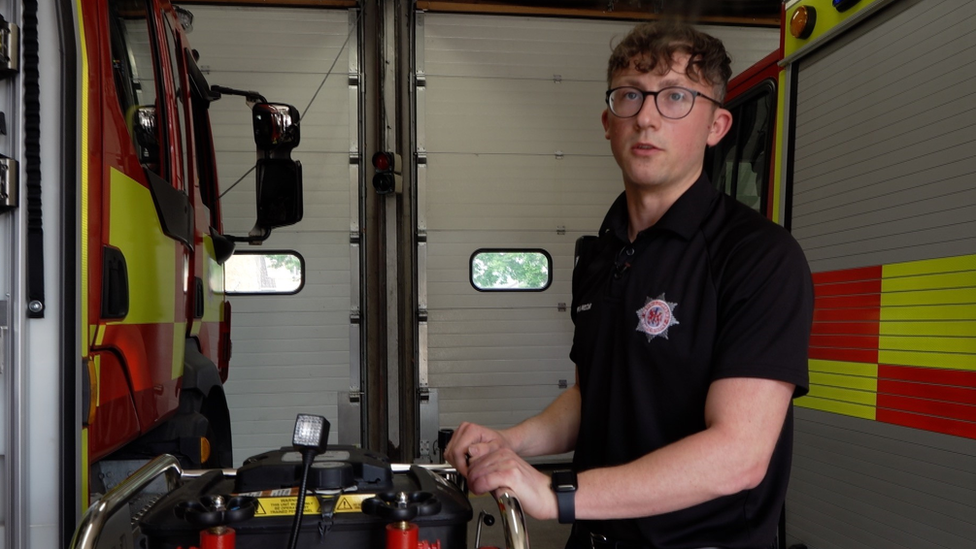
Being on operations again "felt right", Mr Seward said
He said: "I wouldn't be in this position without the NHS, without the work that my surgeons did initially, the air ambulance and the ambulance service as well. I'm in this position because of them.
"I'm extremely grateful, there's nothing I feel that I can do to repay them but hopefully I can do good by being back in another time."
James Henderson, the consultant plastic and reconstructive surgeon at Southmead Hospital who operated on Mr Seward's injury said he was an "amazing guy" who had a "horrible injury".
He said that has resulted in Mr Seward losing "the skin and the tissue under the skin down to the bones and the tendons all over his left hand" - a situation that posed a "pretty difficult reconstructive problem".
"We solved it in a fairly old-fashioned way by burying it in his abdominal wall and that's pretty difficult to live with, you have to leave it there for three weeks and then we separated it," he said.
"It comes out more like a table tennis bat and so after that we then separated the fingers out with a series of different operations and he's been absolutely amazing.
"He's worked so hard and what he's achieved is incredible. I'm really impressed by him."
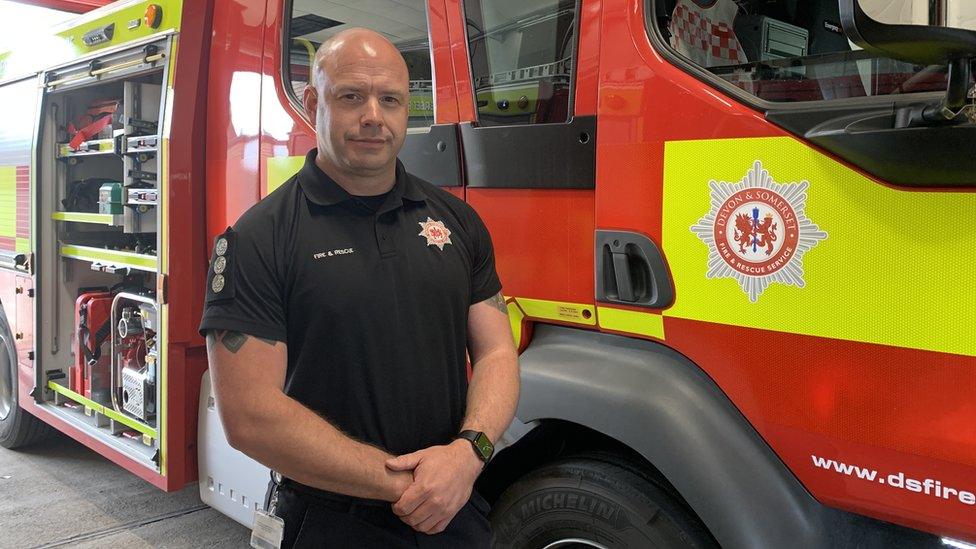
Station manager Dominic Mallett said it was a testament to Mr Seward's "grit and determination" that he was able to return
Station manager Dominic Mallett said Mr Seward had worked hard with the training team at DSFRS to adapt his training techniques to allow him to fulfil a full operational role.
"It is testament to his grit and determination for him to be able to return after such a significant injury," he said.
"At Devon and Somerset Fire and Rescue Service, we pride ourselves on providing a diverse workplace.
"There are many roles (both support and operational) in the organisation that can be completed by people with a disability."
Mr Mallett said anyone interested in joining the organisation could look on the jobs section of the DSFRS website or contact the recruitment team.

Follow BBC News South West on Twitter, external, Facebook, external and Instagram, external. Send your story ideas to spotlight@bbc.co.uk, external
Related topics
- Published22 August 2017
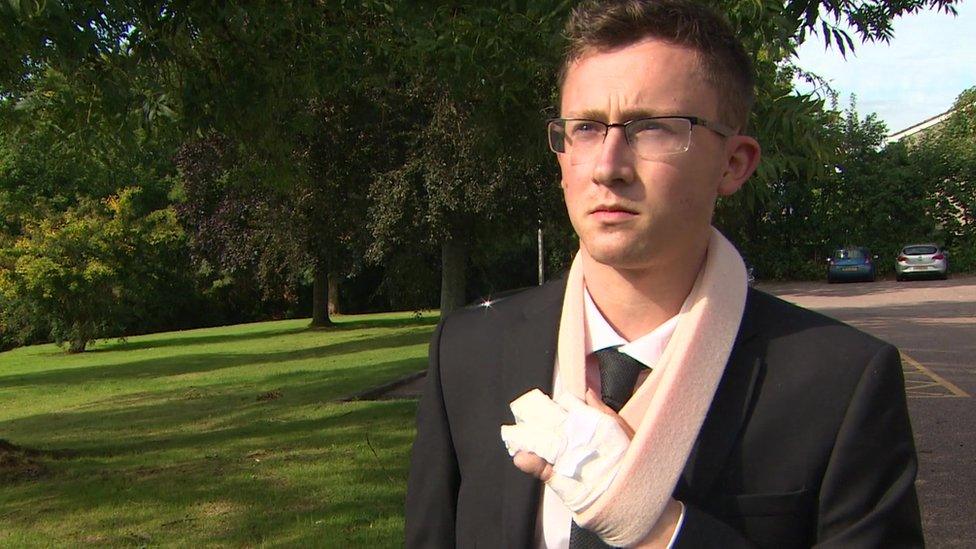
- Attribution
- Published28 August 2018
